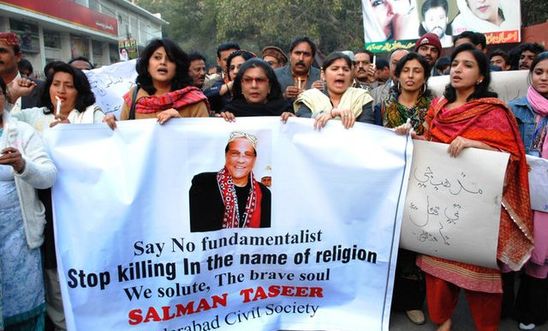
Press releases
Pakistan: execution is no way to deliver justice for Salman Taseer murder

Pakistan has executed more than 300 people in past 14 months
Responding to the hanging of Mumtaz Qadri in Pakistan earlier today, Amnesty International said that the taking of another life is no way to ensure justice for the murder of Salman Taseer.
Mumtaz Qadri, the bodyguard of ex-Punjab governor Salman Taseer, was hanged today in Islamabad’s Adiala Prison, after being convicted of Taseer’s murder. Qadri admitted that he killed Salman Taseer in January 2011 over the governor’s opposition to Pakistan’s blasphemy laws.
Pakistan’s blasphemy laws fuel intolerance and a simple accusation is sometimes enough to put people at risk of vigilante mob violence. Everyone in the country, whether Muslim, Christian or from another minority religious group, is at risk. Amnesty is urging the Pakistani authorities to urgently reform the laws in line with international law and standards.
Amnesty International’s South Asia Regional Office Director Champa Patel said:
“Salman Taseer was a brave voice for religious tolerance in Pakistan and his murderer should be brought to justice, but carrying out more killings is a deplorable way to honour Salman Taseer’s life and message.“While it is positive that the government is committed to tackling religious extremism and is taking proactive steps to ensure perpetrators of violence are brought to justice, carrying out yet more killings only continues the cycle of violence.“The authorities have now executed more than 300 people in little more than 14 months - Pakistan must immediately impose a moratorium on executions with a view to the eventual repeal of the death penalty.”
Protests after hanging
Protests against the hanging of Mumtaz Qadri have been sweeping across Pakistan today, and Amnesty is urges the authorities to ensure that the security forces avoid resorting to the use of force and only do so if non-violent means remain ineffective in containing violent acts or threats of violence by protesters. If force is used, then it should be necessary and proportionate to contain such violence, and with a focus only on the individuals posing a threat. They must respect the right of protesters to demonstrate peacefully.